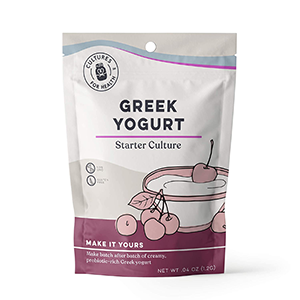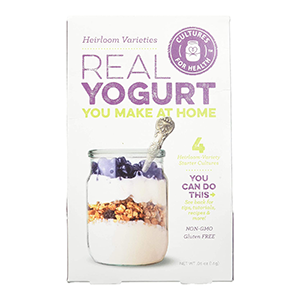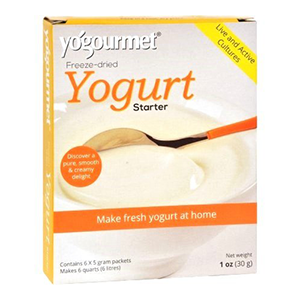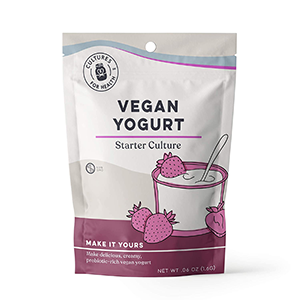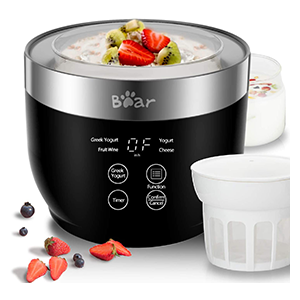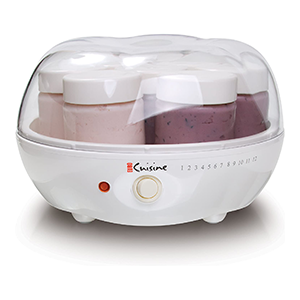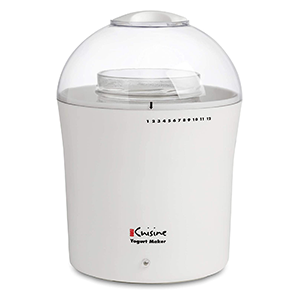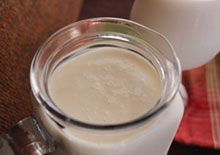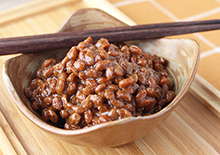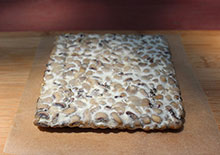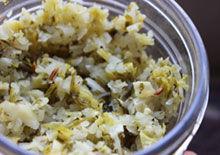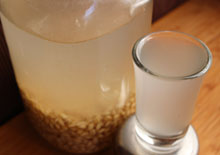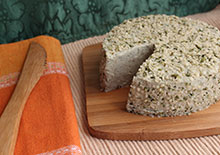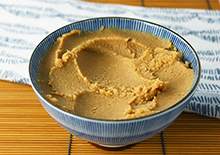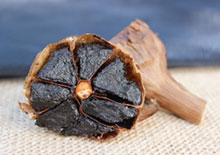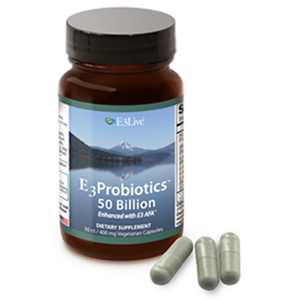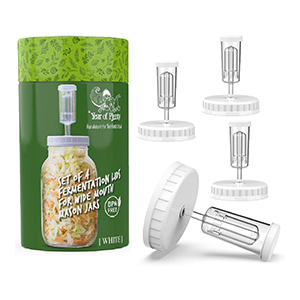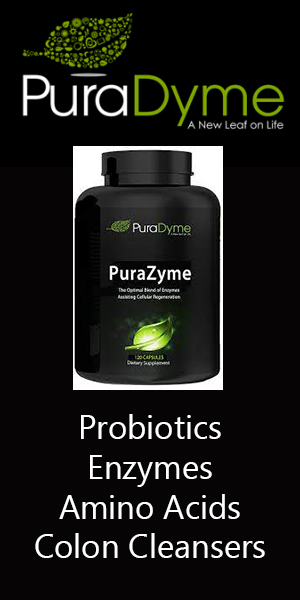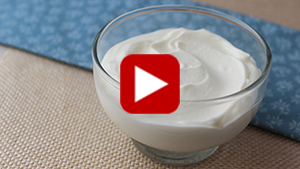- Home
- Fermented Foods
- Yogurt Nutrition
Yogurt Nutrition, List of Pros and Cons
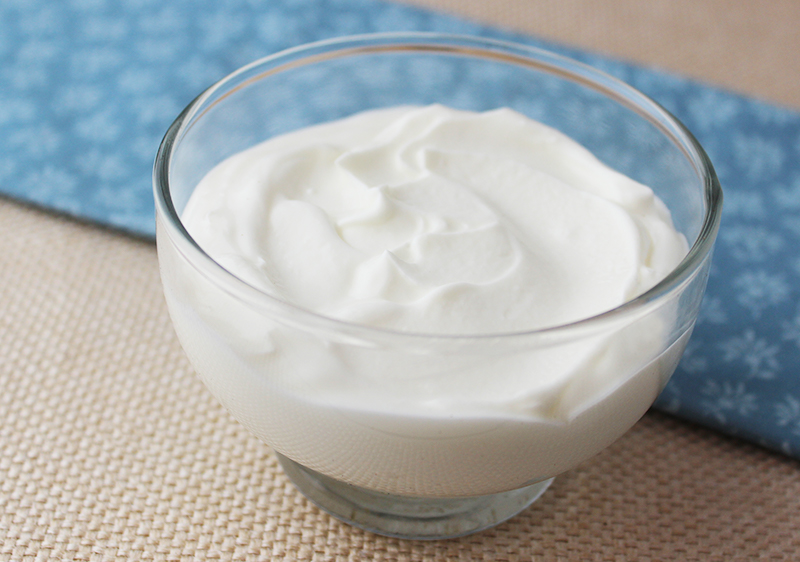
When discussing yogurt nutrition and its main benefits and drawbacks, it
is important to first establish the general type we are referring to
for the purpose of this review.
Most nutritionists agree that the best commercial yogurt, from a health perspective, is one that contains a simple list of ingredients. Mostly this would include the type of milk used as well as the live active culture species.
If you enjoy yogurt on a regular basis, it’s usually a good idea to add your own natural sweeteners and/or other toppings so you can control quantity as well as quality. Also, don't forget that yogurt is very easy to make homemade-style from any type of milk or even plant-based substitutes.
Dairy yogurt brands frequently offer plain unsweetened varieties and this is the type we will examine below.
The 4 Pros of Yogurt
#1 Probiotic Nutrients
Yogurt, or the fermentation of milk with lactic acid bacteria, is probably one of the most popular fermented foods consumed around the world for its probiotic nutrients. Supplementing the diet with probiotic food sources is believed to help maintain a healthy intestinal microbiome, support digestive health as well as immune functions.
Most all traditional yogurt is made with the main two thermophilic cultures. These are Streptococcus thermophiles and Lactobacillus delbrueckii subsp bulgaricus which give yogurt its tart tangy flavor. In the modern-age other Lactobacilli and Bifidobacteria types, like Lactobacillus acidophilus and Bifidobacterium bifidus, are frequently added to commercial yogurt to increase microflora and health benefits. (*) Hence, the new term "probiotic yogurt" is sometimes used on product labels.
Probiotic Content in Greek Yogurt, Bulgarian and Kefir
Greek yogurt is claimed to contain less probiotics because they can be strained out when thickening it. Some Bulgarian yogurts, when traditionally fermented for a longer time frame, are viewed to be higher in naturally occurring probiotics.
Kefir is also another probiotic drink option to consider as it’s known to contain more diverse microbial strains than yogurt. Also, in greater quantities.
For vegans or those with milk intolerance, there are plenty of fermented dairy-free alternatives and options for making your own homemade varieties. In addition, other cultured foods like sauerkraut, kimchi, kombucha and low-temp heated miso can also be used to provide beneficial probiotic nutrients to the gut microbiome.
#2 Yogurt is Lower in Lactose
One pro of yogurt as well as kefir is that it is lower in lactose content which can be better for those who have trouble digesting this milk sugar.
The main two strains S. themophilus and L. delbrueckii ssp. bulgaricus are known for their ability to predigest or break down lactose, potentially making it more digestible.
Authentic "kiselo mlyako" or Bulgarian yogurts are believed to contain less lactose because they're not only fermented for a slightly longer period but may contain hardier Lactobacillus bulgaricus strains. Bulgaria is in fact where this important yogurt species was first isolated.
In most Greek yogurts, more lactose sugars are thought to be removed with the straining process. Generally, the tarter plain yogurt is, the less lactose is present.
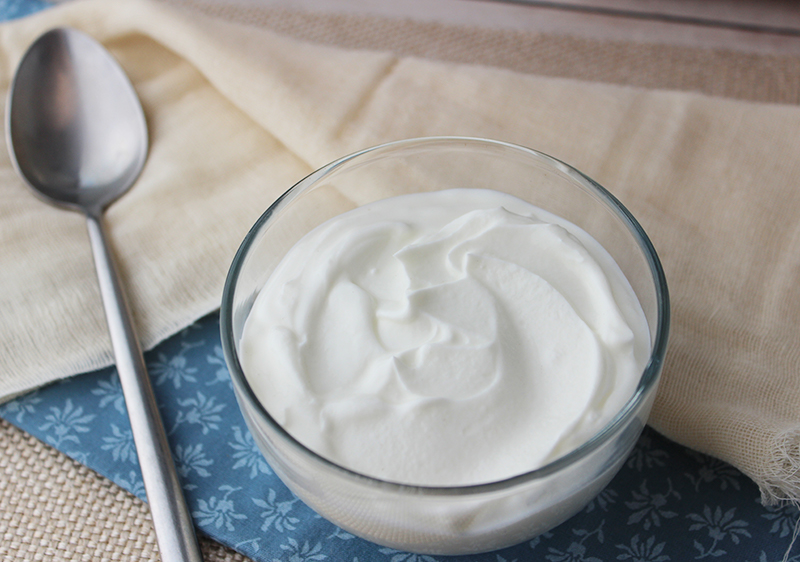
#3 Yogurt Nutrition, Protein Vs Fat
The best yogurt for any one individual is largely subjective to one's health objectives. When it comes to the type of yogurt you select, the amount of protein and fat can be something to consider.
One popular advantage to Greek yogurt is that it contains more protein to fat content, usually over twice the amount of protein per serving. For example, two organic Greek yogurt varieties, as identified on nutrition facts labeling, contain 6 grams of fat and 16 grams of protein.
In a 2019 12-week study on men, Greek yogurt was considered a good dietary protein source when consumed after resistance training exercises for increasing lean body mass and strength.
This can also be of benefit if you're wanting to reduce overall fat intake, especially the saturated variety. Greek yogurt is therefore sometimes claimed to be better for weight loss and its higher protein can help to satisfy the appetite. Non-fat yogurt is also another option.
If you're adhering to a ketogenic diet, traditional or Bulgarian whole milk plain yogurt may be more appropriate. These types contain equal amounts of both fat and protein.
#4 Contains Calcium and B-12
Another bonus to eating yogurt is that it is not only a source of calcium and vitamin B-12 but the absorption of these nutrients may improve due to the culturing process. It is often considered a nutritional food recommended to older adults. (*)
Plain whole milk yogurt is especially high in CALCIUM. We observed from yogurt nutrition labels that an average 3/4 cup (170g) serving can contain about 190-210 mg of calcium or 15% the Daily Value for an adult 2000 calorie diet.
Likewise, yogurt can be a good vitamin B-12 food supplement for vegetarians or those following a mostly plant-based diet.
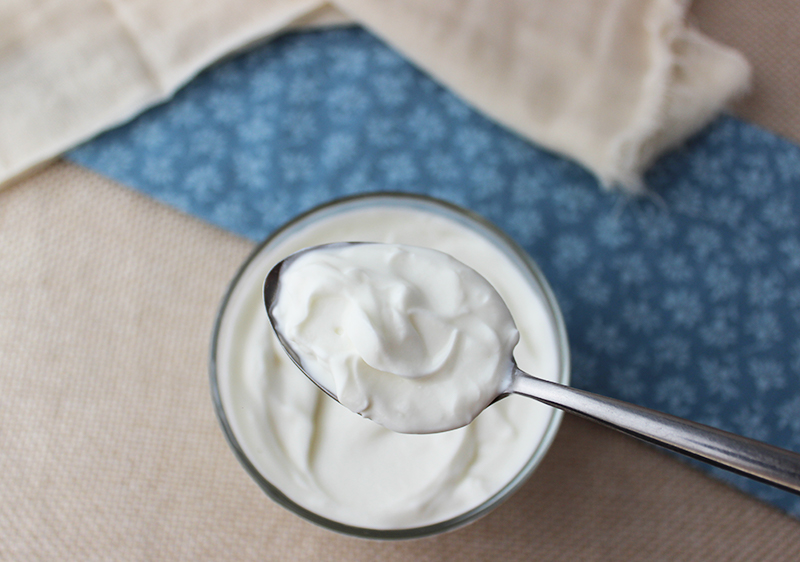
The 4 Cons of Yogurt
#1 Live Active Cultures and CFUs
Although yogurt brands often indicate "Live Active Cultures" on product labeling, the approximate number of CFUs (Colony Forming Units) is not required.
One disadvantage to this is that it can make it hard to know about how many are in your purchased yogurt. In one article published in Advances in Nutrition, it was estimated that commercial yogurt can contain "10 million to 10 billion CFU/g of food for a given serving of yogurt between 125 and 250 ml" or roughly 1/2 to one cup. So, numbers can range quite a bit depending on the source.
According to the International Dairy Foods Association (IDFA), yogurt must have at least 100 million cultures per gram in order to display a "Live and Active Cultures" seal on product labels.
However, when it comes to using probiotic supplements, generally larger amounts of 20 to 50 Billion CFU per serving are considered the best for therapeutic purposes.
Many holistic health practitioners in fact endorse taking probiotics WITH active fermented foods, like yogurt, as this is believed to increase and encourage overall probiotic uptake.
#2 Yogurt Drawback, A Mucus-Forming Food
As with all dairy products, they are mucus-forming foods that should be avoided if you feel on the verge of sickness or have a cold or flu. Cow's milk products are a top food allergen and many symptoms of dairy sensitivity can be congestion and excess phlegm.
#3 Conventional Non-Organic Yogurt
If you consume yogurt regularly it may be better to go with organic grass-fed or pasture raised alternatives. Conventional yogurt may contain concentrated amounts of not only pesticide residues obtained from factory-farmed feedlots but also potential antibiotics and hormones given to cows over the course of their lifespan. These substances could have negative repercussions on long-term health.
With certified organic varieties, this is not a concern. There are also some yogurt brands that are not organic but state their yogurt is hormone-free.
Compared to conventional factory farmed dairy cows, grass-fed or pasture-raised cows are claimed to produce milk that is far more nutritious than that derived from GMO soy and corn-based feed. This type of yogurt is reported to be higher in omega-3's and conjugated linoleic acid also known as CLA, which helps to break down fats in the body.
#4 Some Yogurts Contain Fillers
Thickening agents are frequently added to many yogurt brands, even Greek yogurts to provide a firm quality. This may include powdered milk solids, pectin, guar gum, modified corn starch, xanthan gum, carrageenan, gelatin and tapioca starch.
If you consume yogurt regularly, you might want to check ingredient labels. Some, like pectin, will simply add fiber but others may increase calories and decrease yogurt quality in our opinion.
Precautions:
Yogurt made from dairy products is not for everyone. If you have lactose intolerance it is best to consult your healthcare professional before adding it to the diet.
Shop Related Products (About Affiliates & Amazon Associate Paid Links)
Affiliate Disclaimer: This section contains affiliate product links. If you make a purchase through our recommended links, we receive a small commission at no additional cost to you. Thanks for the support.

